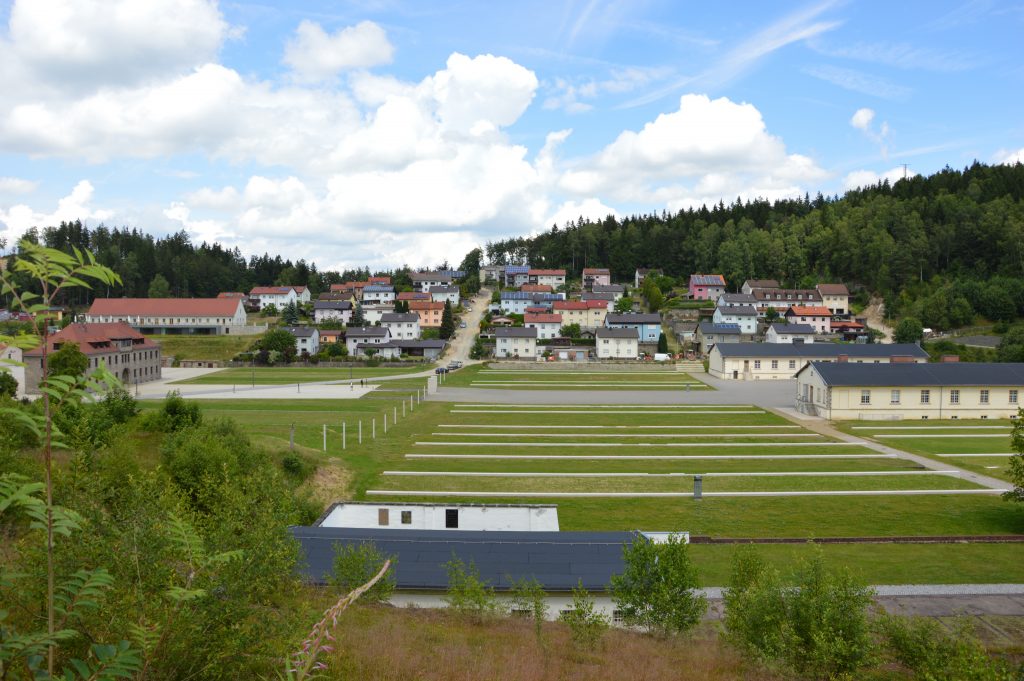
Doreen Pastor, a PhD Student in German, travelled to Germany to collect fieldwork this summer. She recounts her trials and rewards, and offers a couple of tips for postgraduate researchers preparing to go out into the field themselves.
I am a part-time student in German Studies researching how visitors engage with ‘challenging’ histories at memorial sites in Germany. This required spending an extended period of time in Germany talking to visitors at the concentration camp memorials Flossenbürg and Ravensbrück, the Holocaust memorial House of the Wannsee Conference and the former Stasi prison Bautzen II.
So, with my clipboard in my hand, I set off to Germany in June 2016. I was incredibly anxious at the airport with all these thoughts going through my head. “Will the survey I prepared work? Or more importantly, will visitors actually talk to me?!” I was also wondering how I would cope with living in Germany for four months, something many of my friends could not understand as Germany is my home country. I moved to the UK eight years ago and although I have been back since, the UK felt much more like home now.
Flossenbürg concentration camp memorial, my first stop, was a tough site. Visitor numbers were low which meant I had to work very hard in order to achieve my sample size. I stood with my clipboard in the rain, in thunderstorms and in scourging heat, often wondering “Why did I decide to do a PhD?”
By the time I completed my research at Ravensbrück (my 2nd case study), a former concentration camp predominantly for women, my own mental health started to be affected. I had completely underestimated the impact of the loneliness during fieldwork combined with spending significant amounts of time at sites which represent one of the darkest chapters in human history. There were times when I was close to giving up, especially when I went to my 3rd site, the House of the Wannsee Conference, where my living arrangements (student residence halls) were awful. Thankfully, Germany’s summer weather had significantly improved by then and I was able to spend the majority of my time outside, so I could cope with the unpleasant living situation for a month.
My final case study was the former Stasi prison, Bautzen II, in the East of Germany. Interestingly, this was a return to home territory for me, as I am originally from East Germany. It was tough to conduct research in a former Stasi prison, as the history is so close to my own family history (my uncle was imprisoned by the Stasi albeit not in Bautzen). However, it was also an incredibly humbling experience as I met a few former prisoners who talked to me about their own experience of having been a political prisoner in the GDR. In fact, one former prisoner said to me “Your PhD is so important, we need to know how we can engage with visitors in the future when we are no longer here.” This comment gave me a much needed dose of motivation after four months of hard work. I completed my research successfully in October, and was even invited back to Ravensbrück for a presentation to the staff team about my visitor research.
Although, looking back, I enjoyed working at these different memorials, it was one of the hardest jobs I have ever done. I had to learn to cope with rejections and the unpredictability of primary research while also keeping up motivation. Therefore, my main two pieces of advice for any PhD student on fieldwork are:
1. Don’t take setbacks personally – unfortunately the nature of primary research is that it includes ups and downs.
2. As tempting as it is to keep on working, schedule regular breaks – these are vital for your physical and mental health.


